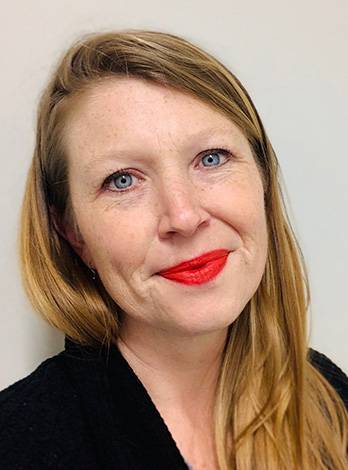What Young Professionals Want From Your Firm
January 23, 2023
by Annie Mueller

Understanding the wants and needs of today's young professionals is key to building a sustainable talent pipeline for your firm of tomorrow. Like many industries, widespread effects of the pandemic, changes in business conditions, and new career alternatives are creating a major talent shortage within the accounting profession. Struggling to fill open positions and deal with increasingly competitive recruiting tactics, CPA firms of all sizes are exploring new strategies for attracting and retaining talent. But which strategies actually make a difference to the young professionals that you so desire and require to build a firm that lasts for generations to come?
It's easy—too easy, really—to make decisions based on generational stereotypes. Sure, in some areas, generational differences are stark, but the pandemic has shifted employee expectations so drastically that even long-standing stereotypes feel outdated today. Putting in the legwork to understand exactly how the next generation of accountants think, and what they want from their employers, is key to building a sustainable talent pipeline for your firm.
UNDERSTANDING GENERATIONAL GAPS
By 2025, Gen Z will comprise about 30% of the global workforce. Before then, the youngest of the millennials are dipping their toes in the workplace waters, while older millennials are rising through the ranks. Making sense of what these modern generations of workers care about when making career decisions has been anything but easy for most, which has led to widespread misunderstandings about how to attract and retain younger talent as well as division and dissatisfaction in the workplace. "One factor causing this generational divide is the notion that young generations are looking for sexy jobs," says Will Baker, marketing and CPA experience director at Once Accounting. "What they're influenced by is doing something of value." In fact, according to the 2016 Monster Multi-Generational Survey, 74% of Gen Z workers and 70% of millennials "rank purpose ahead of a paycheck."
THE FLEXIBILITY FACTOR
However, purposeful work isn't the only thing young professionals are looking for. As a result of the COVID-19 pandemic, workplace priorities have forever changed. Now more than ever, flexibility and work-life balance have risen to the top of many young professionals' career wish lists.
"Young professionals know they can be productive while working on their own terms, and they expect the ability to do so," says Kiara Schuh, CPA, risk and financial advisory senior consultant at Deloitte. "We're all adults who know our working styles and our capabilities. That's just what makes a good professional." Of course, financial security—fair wages and good benefits—is important, too. However, it's just another consideration, not the consideration, says Maria Tranchina, assurance associate at BDO USA LLP: "Paying the bills is important. But getting paid slightly more at a firm that doesn't provide the flexibility you want isn't, for most of us, a good trade."
For that reason, putting the structures and tools in place to enable ongoing flexibility might deserve a higher priority than firms have historically given it. Firm leaders may want to consider these flexibility options:
- Let teams determine their own in-office schedules. "My team is very much on a 'come as you wish' basis for being in the office," Schuh says. "Not every team is like that; some operate on a scheduled rotation." The point is to allow teams to have the freedom to work in the ways that best meet their project’s—and people's—needs.
- Keep mandatory in-person meetings to a minimum. We've all heard of Zoom fatigue, but in-person meetings can be just as fatiguing and disruptive, particularly for firms that have already adopted hybrid work environments. Consider requiring team members to only travel to the office for necessary meetings and engagements to prioritize their productivity and work-life balance.
- Measure productivity by results, not hours. Focus on your team getting the right things done rather than them putting in a certain amount of face time behind a desk.
- Don't fall behind on technology. Baker advises delegating new tech implementations, which make greater productivity and flexibility possible, to younger staff to help build the skills they're going to need in the future.
- Balance remote work with in-person socializing. Regular opportunities to socialize help build camaraderie that carries over to digital interactions. "In-person events, like happy hours, help facilitate that sense of community," Schuh suggests.
CAN YOU OFFER CAREER CLARITY?
Overall, young professionals take their career development seriously and are seeking firms that offer opportunities for varied and new experiences, ongoing guidance, and clear pathways to growth.
"Young professionals don't want to start slowly," says Stephanie Zaleski-Braatz, CPA, an audit manager at ORBA. "I see a lot of young professionals trying to step up to the plate earlier and get as much experience as they can in all aspects of their industry right off the bat," she says.
Knowing that young professionals want to hit the ground running, Tranchina stresses that it would be very beneficial for firms to prioritize the continuing professional development of their new hires and focus on diversifying their experiences.
Having the ability and support to rotate through different specialties during their first few years with the firm appeals to new hires who haven't fully determined their career direction. Schuh shares that "a huge factor" in her employment decision was the resources, training, and quality of experience she knew she would get.
Along with honing skills and gaining experience, young professionals want guidance and feedback. "Career path discussions are a huge help," Zaleski-Braatz says. "It's an opportunity for leaders to explain how we can help the firm grow and give examples of what other people at the firm have done to be successful."
This guidance and feedback can range from formal, scheduled meetings to daily, ongoing interactions. "So often, it's the power of simple conversations, sharing observations, and providing supportive feedback that matters," says Nicole Szczepanek, CPA, a tax partner at Baker Tilly US LLP and a 2022 Women to Watch Award winner. "These daily interactions can make a difference in not only everyday experiences but in people's career paths."
"When young professionals jump ship, it's often because they don't know what their next step is," Zaleski-Braatz cautions. "At some point, they'll have moved through a variety of work and be ready to specialize in specific areas. The conversations about what their futures are at the firm can't be overlooked." To better support a young professional's career development, consider these ideas:
- Offer professional development opportunities. Over the past few years, young professionals have experienced major change and expect to go through more. They're keen to add new skills, expand abilities, and be ready to adapt.
- Don't squeeze support into a box. "As a leader, look for those everyday opportunities to support your team," Szczepanek encourages. "It can come in different forms—review notes, a formal meeting, status updates, or going to lunch."
- Support career milestones. From sitting for the CPA exam to gaining certifications, young professionals value practical help in reaching their career goals.
- Support personal milestones, too. The pandemic has reprioritized life outside of work. For Schuh, the ability to take a sabbatical and pursue a personal project is meaningful. "The firm is supporting me as a person, not just as a professional," she says.
- Be supportive of the person. A revealing question to ask yourself: Can you support a young professional as a person and help them develop their career in the best way, even if that means they don’t stay with your firm?
REAL RELATIONSHIPS MATTER
Incorporating the kind of work-life flexibility expected by young professionals requires trust, on all sides. Additionally, providing genuine feedback and career support requires time and sincere interest. In both areas, there can be no progress without sincere, ongoing human connection. This is especially true with young professionals who value building relationships with the people they work with. Schuh says that a big factor in her decision to stay with her employer was the opportunity to connect with people: "From the beginning, I have felt invested in and very valued, which makes me want to stay because I feel like I really have someone in my corner."
"The role of mentoring and relationships has a huge impact in the attraction, development, and retention of talent," Szczepanek stresses. "It takes effort. Relationships don't happen from just sitting back. Firm leaders have to be actively engaged and set the tone for young professionals. It's important to make sure they have the confidence to speak up, to ask for help, to reach out knowing that they also have a voice."
On the other hand, Baker adds that being able to learn from someone is of great importance, whether you're 25 or 55. "When older professionals exhibit a willingness to learn from younger staff, everyone benefits," he says.
Indeed, continual back-and-forth communication, whether via digital platforms or in person, helps establish real relationships and loyalty. "From my first day, I had people messaging me and scheduling calls," Tranchina says. "There was never a time when people weren't effectively communicating and making me feel welcomed."
There's no single right way to build real relationships, but it's made much easier by developing a welcoming firm culture and thoughtful systems that encourage interaction. To help young professionals build relationships at your firm, consider these tips:
- Encourage all types of mentoring. Both formal and informal mentorship helps young professionals learn through experience and meaningful discussion.
- Be deliberate about digital communication. Without daily, casual interactions of in-office work, you have to be more conscious about creating touchpoints through digital means.
- Mind your message. When communicating via digital platforms, body language is lost. Szczepanek advises that we all “think a little more specifically about what we say and how we say it.”
- Facilitate collaboration. Remote and hybrid work environments can hinder collaboration in a team, so it's important to keep your teams talking. "Keep in mind that many young professionals that started during the pandemic didn't get to work with people at the same level because of the circumstances," Zaleski-Braatz says, stressing that it's important to "find ways to work together more."
- Listen to their ideas. The youngest members of your workforce have plenty to learn, and plenty to offer. "If an individual has a good idea, and they're passionate about it, they should have the opportunity to lead it," Szczepanek suggests.
Ultimately, firms can attract and retain the dedicated, loyal talent they're looking for if they're willing to listen to and understand each generation's own unique needs. Today's young professionals value the stability of the accounting profession, but they're not eager to join firms that aren't focused on the future. That means offering purposeful work, work-life flexibility, personalized career development, mutual respect, and genuine relationships.

Annie Mueller is an experienced financial writer and principal of Prolifica Co. She works with clients from individuals to large financial companies and is a frequent contributor to various financial and business publications.
Reprinted courtesy of Insight, the magazine of the Illinois CPA Society. For the latest issue, visit www.icpas.org/insight.
This article appears in the winter 2023 issue of the Washington CPA magazine. Read more here.
